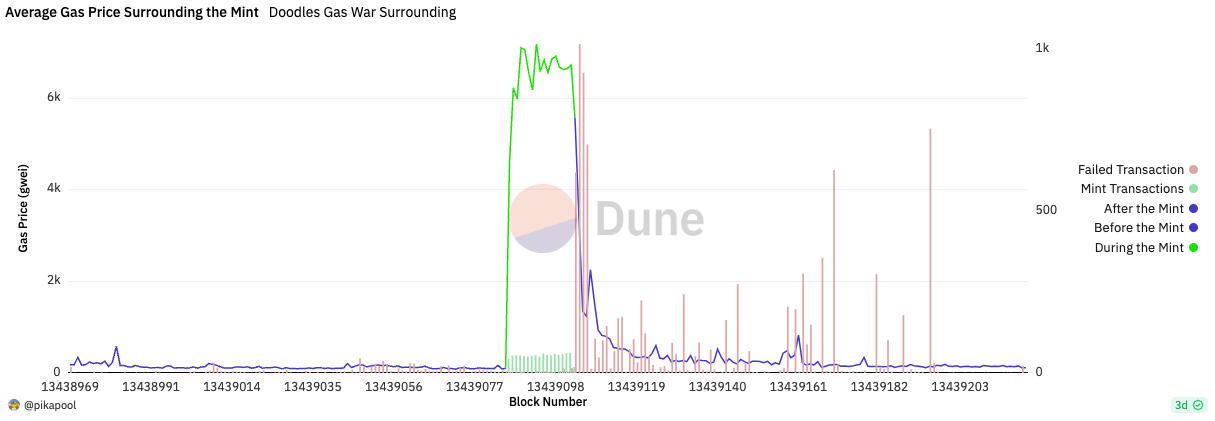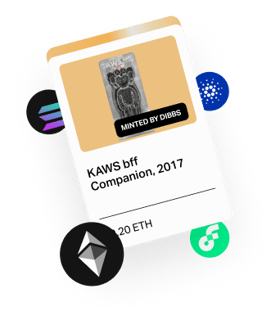Here’s How Brands Can Simplify NFT Claims For Their Users
The NFT collection from one of the most popular TV series Game of Thrones sold out in seven hours. But the collection was met with a strong backlash from the buyers. The reason: a shabby NFT claim experience.

Many users complained about mint delays and expressed disappointment at the fact that they couldn’t purchase the NFTs from the secondary marketplace if they didn’t hold ETH.
This goes to show that the hype and novelty of a project aren’t enough to determine its NFT’s success. The NFT claim experience a brand offers also remains a crucial element. So, for an NFT campaign to truly succeed, brands must pay attention to their NFT claim experience.
In this article, we delve into situations where users have to claim an NFT, the challenges claimants face, and what brands can do to simplify the user experience of claiming NFTs.
When do Users Have to Claim an NFT?
Here are a few common scenarios where users may have to claim an NFT:
- Presales: During the launch of new NFT projects, early supporters or specific community members can claim NFTs before they're available publically. This is often done to reward early supporters or to generate buzz around the project.
- Loyalty rewards: Brands or platforms leverage NFTs to enhance customer loyalty. Once customers accumulate enough points or meet set criteria, they become eligible for NFT rewards and have to claim them through the brand’s platform.
- Airdrops: These are marketing events where tokens or NFTs are sent to wallet addresses randomly or based on specific criteria. Depending on the project, the NFT might appear in the user’s wallet automatically, or they might need to claim it manually by connecting their wallet.
- Purchase: Once a user has selected the NFT they want to purchase, they can claim the NFT after completing the payment.
Challenges Users Face While Claiming NFTs
Claiming an NFT can be a tough task, especially for those new to web3. This complexity can act as a deterrent and negatively impact an NFT’s overall success. So, brands need to address the challenges associated with the claim process.
To start, users need to set up a cryptocurrency wallet and understand concepts like private keys, public keys, and seed phrases to keep their assets safe. In addition, they have to deal with gas fees, which can be volatile and spike during periods of high network congestion.
Doodles, a collection of 10,000 unique profile pictures, faced this problem when they conducted a public sale after their whitelist event. During the sale, more people wanted to mint the remaining NFTs which caused the demand for block space and gas fees to skyrocket.

Besides, the NFT space is filled with malicious actors who scam users or use bots to snatch up NFTs and leave other users empty-handed. During the SuperGucci drop, one user flipped 12 NFTs in the first 30 minutes, leading to a sold-out inventory even before other consumers received the access code.
Subscribe to get our best content in your inbox
By clicking “Submit” you agree to Dibbs
Privacy Policy and
consent to Dibbs using your contact data for newsletter purposes.

3 Strategies for a Smooth NFT Claim Experience
There are several ways brands can make the NFT claim process more accessible and user-friendly.
Create a Wallet-less Experience
By eliminating the need for a digital wallet, brands can simplify the process of acquiring NFTs, making it more similar to traditional online transactions that users are familiar with.
Alo Yoga, a popular apparel and accessories retailer, has successfully implemented this approach. They rolled out an in-store NFT claim experience, which allows customers to receive free digital collectibles featuring "daily affirmations".
The process is simple and intuitive - customers tap their smartphone against a terminal at the checkout counter, which directs them to a website where they can claim their free NFT. Also, the retailer doesn’t use any web3 jargon in their marketing messages to keep the entire process non-technical and approachable to anyone.
Cover Gas Fees
Paying for gas fees simplifies the process of acquiring NFTs and makes them more accessible to a wider audience, including those who are interested in NFTs but are deterred by the volatility surrounding gas fees.
A great example of a brand that did this right is Nike. It covered the gas fees of users who minted the .SWOOSH IDs and onboarded users with just a single click. This also meant that users didn’t need any cryptocurrency which made the process of acquiring the NFT straightforward and accessible, even to users who were new to the NFT space.
Conduct a Fair NFT Claim Process
Fairness in the NFT claim process is crucial to ensure that all participants have an equal opportunity to acquire the NFTs. This is particularly important during high-demand drops, where a large number of users are competing to claim a limited number of NFTs.
For the latest drop, Reddit made changes to limit purchases based on account age and other metrics to prevent newly-created accounts from buying NFTs in large quantities for flipping. This helped to ensure that the NFTs were distributed more evenly among participants.
Additionally, Reddit implemented a CAPTCHA verification system to ward off automated bots, which further enhanced the drop’s fairness and garnered a positive reputation for the brand.
Build a Seamless NFT Claim Experience with Dibbs
The NFT claim process is a critical aspect of any NFT initiative and can significantly impact the user experience and the overall success of the project. So, brands venturing into the NFT space must prioritise simplifying the claim process, making it as user-friendly and accessible as possible.
Dibbs understands this well. Apart from helping you tokenize your assets, we also help you create a seamless NFT claim experience which helps enhance user engagement and build brand loyalty. So, if you want to enter the NFT space, schedule a demo and discover how we can help you create a seamless NFT claim experience for your users.

Ben Plomion
Ben Plomion is Dibbs' Chief Marketing Officer. As a child, Ben collected comic books and Panini Football stickers. Now, Ben's PC consists of physical-backed NFTs.

